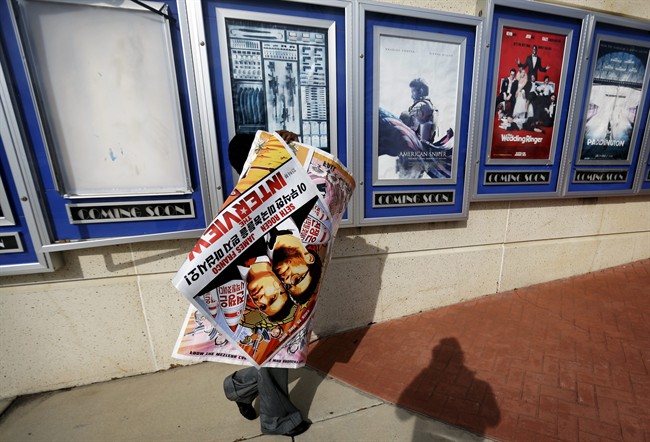If you had plans to see Sony Pictures’ The Interview on Christmas Day, you likely already know you’re out of luck. You could consider yourself a victim of what former Republican Speaker of the House Newt Gingrich said is the first cyber-war the U.S. has lost.

“This is a very very dangerous precedent,” Gingrich said in a tweet on Wednesday, following Sony Pictures’ widely criticized decision to cancel next week’s release of the comedy.
Cyber-war? Not exactly, said cyber-security expert Bruce Schneier.
“Armies, deaths, bombs, missiles, none of that matters. Somebody steals your email…”
- Invasive strep: ‘Don’t wait’ to seek care, N.S. woman warns on long road to recovery
- Ontario First Nation declares state of emergency amid skyrocketing benzene levels
- T. Rex an intelligent tool-user and culture-builder? Not so fast, says new U of A research
- Nearly 200 fossil fuel, chemical lobbyists to join plastic treaty talks in Ottawa
Schneier doesn’t dismiss the seriousness of the Sony cyber-attack. He said as far as corporate hack jobs go, it’s one of the worst. It’s just that cyber-attacks happen on a daily basis and they don’t make headlines in as sensational a way as this one has, he said.
READ MORE: Hollywood reacts to Sony decision to cancel The Interview release
As a result of the cyber-attack, Sony Pictures is facing millions of dollars in financial losses, three lawsuits (so far) following the release of the personal information of thousands of its employees, and two of its top executives have an entire carton of eggs on their faces thanks to embarrassing leaked emails that criticized some of Hollywood’s biggest stars.
Schneier said Sony Pictures should be more concerned about the behaviour of its executives — evidenced in leaked emails about Angelina Jolie, Leonardo DiCaprio and U.S. President Barack Obama— and the state of cyber-security at the company, rather than whether or not the reclusive and hot-headed leader of the North Korean regime is behind it.
Although the attack was carried out by a group calling itself the Guardians of Peace, U.S. federal investigators have linked it to North Korea. The breach is said to be in retaliation for The Interview‘s storyline about an American plot to kill North Korean leader Kim Jong-un.
Earlier this year, the North Korean government said it considered the film an act of “terrorism.”
READ MORE: Timeline: How the Sony Pictures hacking scandal unfolded
On Dec. 9, the hackers demanded The Interview‘s release be cancelled. Then, on Dec. 16, they warned theatre goers to avoid screenings of the film with a reference to the 9-11 attacks. Theatre chains, including Canada’s Cineplex, began pulling their planned screenings. Sony Pictures scrapped the release after that.
This is exactly why this attack is unprecedented and, essentially, an act of cyber-warfare, said University of Ottawa professor Errol Mendes.
As a professor of international law and business law, Mendes said this isn’t your run of the mill attempt to steal customer credit card information or trade secrets.
“What you have here is a new phenomenon which is very, very dangerous,” he told Global News. “It is potentially a precedent which everyone, business, governments and now even the creative sector… has to be aware of.”
He said the attack has “had a chilling effect on freedom of expression,” because of Sony’s decision to cancel the release, and that it is very much a political issue.
Unlike people, including Schneier, who are skeptical of the alleged North Korea connection to the cyber-attack, Mendes said there appears to be little doubt the regime is responsible.
White House spokesperson Josh Earnest did not outright blame North Korea, at a press briefing Thursday, but said it was a “sophisticated actor” with “malicious intent” that was responsible for the attack and equated it to a national security matter.
Mendes said lessons should have been learned from previous cyber-attacks on U.S. corporate and government networks. “It’s going to be happening a lot more,” he said.
*CORRECTION: An earlier version of this story incorrectly quoted Newt Gingrich. He did not say this is the United States’ first cyber-war, rather “America lost its first cyberwar.”
With files from Global News Tech Reporter Nicole Bogart and The Associated Press




Comments